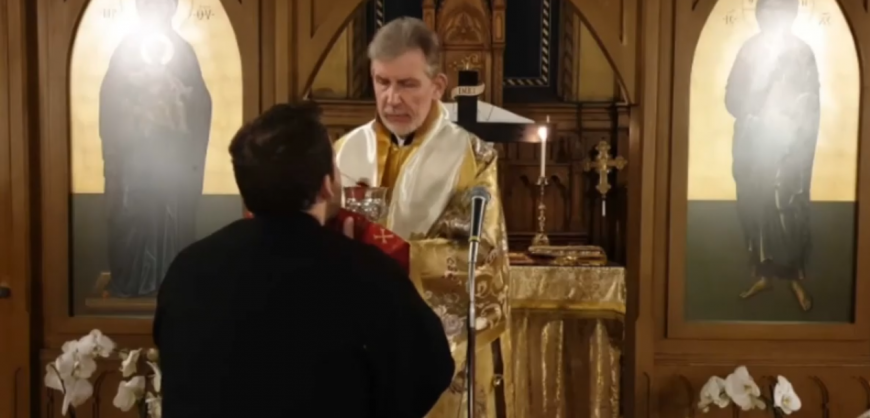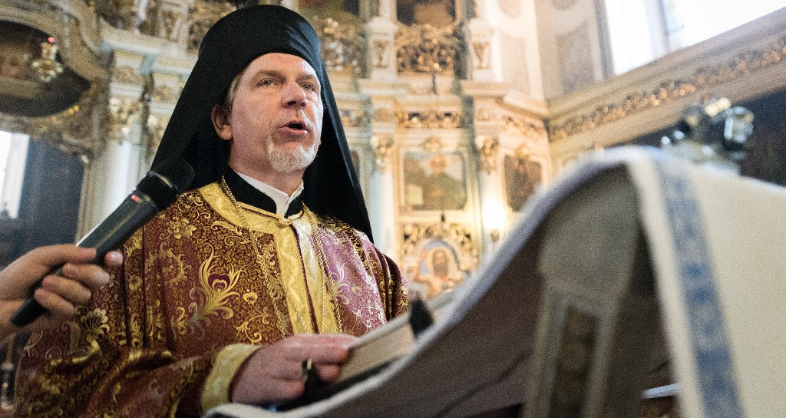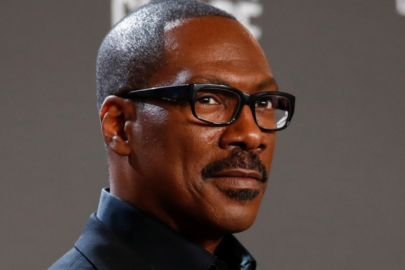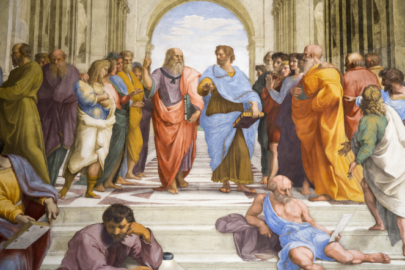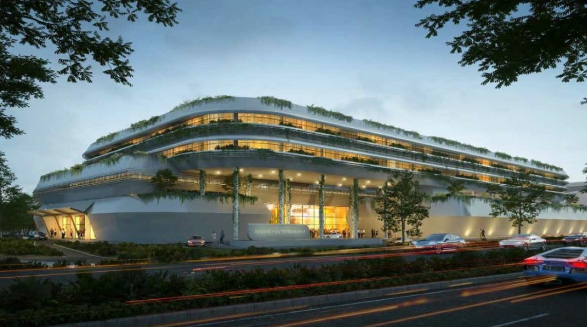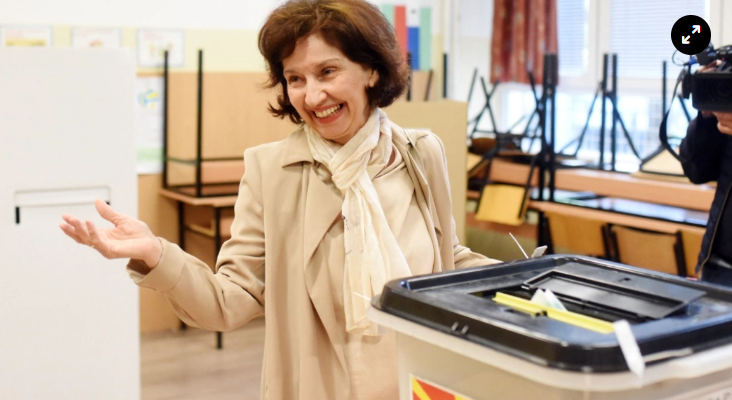On the Sunday of Thomas, April 26, 2020, The Metropolitan of Sweden, Mr. Cleopas, gave an interview to Mr. Nikolaos Kitsios, immediately after the Eucharistic Meeting at St. George’s Cathedral in Stockholm. The bishop answered 36 questions, most of which addressed the consequences of the coronavirus pandemic to the ecclesiastical events of his province and to his own vision of the Church in Scandinavia.
Asked how he felt performing the liturgy alone, in front of empty seats, without people, Metropolitan Cleopas replied: “We are never alone, especially in the temple. Christ is the one who offers and spreads in the Eucharistic assembly. The 8,000 people who watched the Resurrected Divine Liturgy online were not indifferent spectators, but prayed”.
Asked if we have anything to learn from the pandemic, the hierarch said: “Apart from the devastating effects of the coronavirus on health and the economy, there are some positive consequences. Staying home gives us the opportunity to engage in “knowing ourself”, to limit faceless online friendships and to develop true interpersonal relationships and to allow our planet to breathe”.
He described as a top event of 2019 the visit of the Ecumenical Patriarch Mr. Bartholomew to the celebrations of the 50th anniversary of the founding of the First Swedish Diocese and the need to organize the first Clergy Spiritual Meeting in the province where children were given the chance to be taught by the wisdom, simplicity and Byzantine grandeur of their Father and Patriarch.
He referred to the priorities he set at the beginning of his hierarchical ministry, summarizing them in the manning of the parishes with active and devoted clergy and the establishment of new parishes, catechism schools, catechism departments for the laity, youth and Poor Fund. As his vision for the coming years, he set up the parishes with more clergy, manned the sanctuary of St. Nicholas with a small monastic fraternity and set up a Spiritual Multicenter and camps.
He rewarded the children’s presence in the temple, even if it made a little fuss, saying: “In the children’s faces I see tomorrow’s leaders of the Greek community in Scandinavia, the priests, the chanters, the members of the ecclesiastical councils, the benefactors and their successors of our vision. Children need to feel that they are in a familiar environment, in order to love it and to come back and spiritually grow up in it”.
He referred to his acquaintances with Saints Iakovos Tsalikis, Porphyrios Kausokalyvitis, Paisios Agioreitis, Sophronius of Essex and Ephraim Katounakiotis and to his 20 years of engagement and research in archives on the pastoral action and writing of St. Nektarios Pentapoleos.
Regarding the use in the sacred liturgy of languages other than Greek and for the performance of the Patriarchal Divine Liturgy in 11 languages, the Metropolitan of Sweden said: “We do not live in Greece. The “go and teach the nations” is not addressed exclusively to the Greeks, but to everyone. In the six years of my hierarchical ministry, 130 people became Orthodox. The language of the Gospel and the Divine Liturgy, as well as the sermon, must be understood by all, especially the young, whose Greek is limited. The Patriarchal Divine Liturgy was held in 11 languages, to emphasize the ecumenical mission of the Mother Church of Constantinople”.
He thanked His Beatitude Archbishop Ieronymos of Athens and the Hierarchs of the Church of Greece, who support the work of his province by approving the secondment of their clergy to Scandinavia and by issuing liturgical and theological textbooks from the Church’s Publishing House, its director, His Eminence the Metropolitan of Fanari Mr. Agathangelos and his associates.
Asked what he would like people to remember about him after years, he replied: “Nothing personal from me, not even my name. The clergy are servants of the Word of God. Nobody remembers the servants, but the host is remembered and the host is Christ. He does the work, we just serve Him and His faithful people”.
Asked how the 200th anniversary of the Greek Revolution should be celebrated, he said: “With modesty and meaning. The aim of the upcoming celebrations is to support the tested Greek people, taught by the heroism, militancy and spirit of sacrifice of our ancestors. Let us read the lives of the heroes of the Revolution, their speeches and writings and let their lives become our lives. They are not a museum legacy, but a living tradition, a lasting reminder of our debt to our ancestors and our descendants”.
The interview ended with a short message from the pastor to the Hellenism of Scandinavia. “Vision and fighting spirit. Cooperation, mutual support and not individualism. We should fight collectively and not individually, without being divided. Stronger together!”

